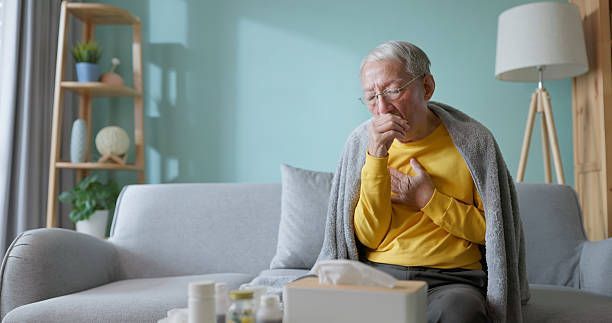4 Benefits of Home Care
Are You Considering Home Care Services for Elderly?
When a loved one is diagnosed with a chronic illness or condition such as Alzheimer’s disease, families are often faced with the difficult decision of selecting the most appropriate type of care. According to the Alzheimer’s Association, over 6 million Americans live with Alzheimer’s disease, many of whom require ongoing daily assistance. While nursing homes and assisted living facilities are common options, home care offers an increasingly preferred alternative for many families.
This article from 7 Day Home Care explores four often overlooked benefits of choosing in-home care over institutional care. Whether you’re researching the best care options for a family member with Alzheimer’s, recovering from surgery, or facing mobility challenges, these insights will help you make an informed decision.
1. Enhanced Family Connection and Emotional Support
One of the most powerful advantages of home care is the ability to maintain close and consistent contact with loved ones. When patients remain at home, they are surrounded by family and familiar relationships, which play a vital role in emotional health. In contrast to the structured visitation hours and impersonal settings of nursing homes, home care enables families to spend time together freely and frequently. This helps reduce feelings of isolation and depression, which are especially common among elderly individuals and those coping with chronic illness. Family involvement in care can also improve outcomes, especially for patients with dementia, where familiar voices and faces provide comfort and cognitive stimulation. At 7 Day Home Care, our caregivers understand the importance of the family unit. We encourage family members to be part of the care process and offer regular communication with our staff to ensure transparency and trust.
2. Staying in a Familiar, Comfortable Environment
For individuals with conditions such as Alzheimer’s disease or dementia, environmental familiarity is more than a preference—it's essential to their well-being. Being uprooted from the home they know can lead to confusion, increased anxiety, and even faster cognitive decline. Home care allows individuals to continue living in a familiar space, where they know the layout, the sounds, and even the smells. They can maintain their routine and access their favorite chair, television program, or pet—all of which contribute to comfort and peace of mind. Our caregivers at 7 Day Home Care are trained to work within the client's home environment and provide customized care that respects the routines and preferences of each individual.
3. Greater Flexibility and Maintenance of Daily Routines
Home care provides the flexibility to build a schedule around what matters most to the client. Rather than adapting to the routines of a facility, seniors receiving home care can maintain their own pace of life. This can include everything from when and what they eat, to their daily hobbies, rest times, and interactions with pets or neighbors. For many individuals, particularly those dealing with long-term illnesses, the preservation of these daily rituals offers a sense of control and independence. At 7 Day Home Care, we develop personalized care plans that fit seamlessly into our clients' existing lifestyles. Whether it’s a morning walk, a favorite puzzle, or an afternoon phone call with a friend, we make sure each day includes meaningful activities.
4. Home Care Is More Cost-Effective Than Institutional Care
While nursing homes provide a wide array of services, they also come with high costs that can place a financial burden on families. The price often includes room and board, facility fees, and round-the-clock staffing—whether those services are fully used or not. Home care, by contrast, is typically more affordable because services are tailored to the individual’s actual needs. Families can schedule care for just a few hours a day or opt for 24/7 care as needed, making it a flexible and scalable option. In addition, receiving care at home may help avoid expensive hospital readmissions by ensuring that patients follow medication schedules, receive proper nutrition, and get immediate attention when symptoms arise. 7 Day Home Care accepts private pay, long-term care insurance, and workers’ compensation insurance (NYSIF), making high-quality home care accessible to more families across New York.
Additional Benefits of Choosing 7 Day Home Care
Choosing a home care provider is a major decision, and not all agencies offer the same level of service. At 7 Day Home Care, we go above and beyond to ensure each client receives the best possible support.
Here’s what sets us apart:
- All caregivers are certified Home Health Aides (HHAs) through the New York State Department of Health.
- Every care plan is supervised by a licensed registered nurse (RN) to ensure safety and quality.
- Services are available throughout New York City, Long Island, Nassau County, and Suffolk County.
- We provide flexible care plans ranging from a few hours a day to 24/7 live-in support.
- Specialized training in dementia care, mobility assistance, post-surgical recovery, and more.
- Multilingual staff to accommodate diverse communities.
When to Consider Home Care
If you’re unsure whether your loved one is ready for home care, look for key signs such as difficulty managing medications, increased falls, forgetfulness, poor hygiene, or social withdrawal. These are common indicators that professional assistance may be necessary. The earlier care is introduced, the more likely it is to prevent accidents, improve overall well-being, and reduce the burden on family caregivers. Home care also offers peace of mind, knowing that your loved one is being looked after by trained professionals in the safety of their own home.
Free In-Home Consultation
We understand that every situation is unique. That’s why 7 Day Home Care offers a free, no-obligation in-home consultation. During the visit, our care coordinators assess your loved one’s needs, answer your questions, and develop a personalized plan that fits your family’s goals. Call 516-408-0034 or visit www.7dayhomecare.com to schedule your consultation and learn more about how we can help your family today.
Home care is more than just a convenient option—it’s a powerful way to maintain quality of life, independence, and emotional well-being. From preserving routines to reducing costs and keeping families close, the benefits of home care are often overlooked but deeply impactful.
At 7 Day Home Care, we are honored to support families across New York with skilled, compassionate, and reliable in-home care services. Let us help your loved one age with dignity and comfort at home. 7Day Home Care provides low cost private pay in-home care services and is an approved provider under many insurance policies, including MetLife long term care insurance - throughout NYC -Manhattan, Queens, Brooklyn, and Long Island, New York. To learn more about our award winning home health aide care services for in-home care, please call 516-408-0034 to schedule your free consultation.
Brian Callahan
7 Day Home Care

Living With Parkinson’s Disease: How In-Home Care Helps Seniors Stay Safe, Independent & Comfortable









